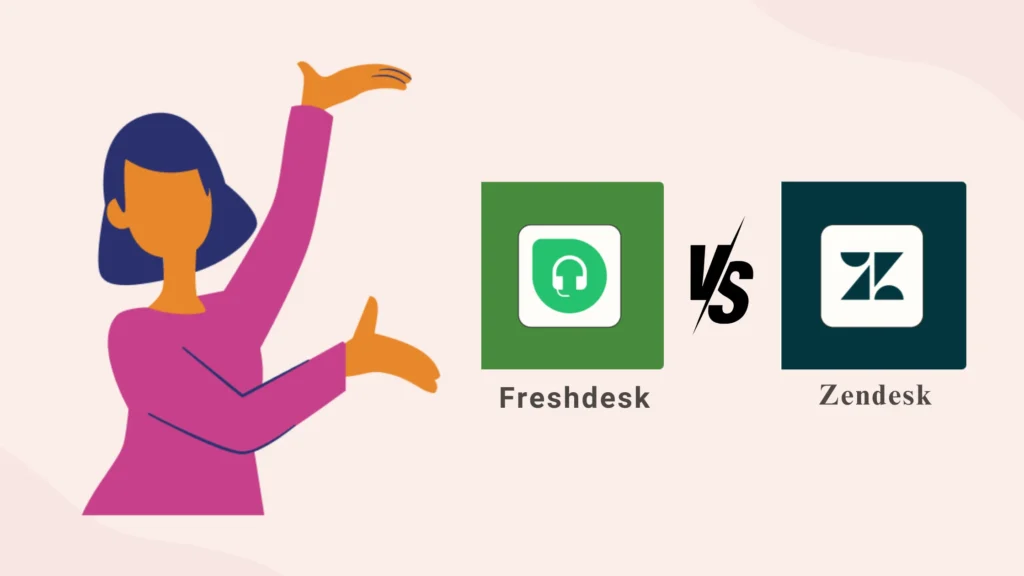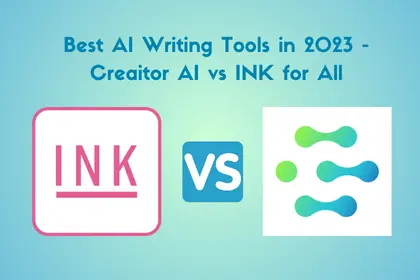The world of customer service is constantly growing and changing. Customers are more discerning and demanding than ever before, which makes having a robust and flexible customer support platform is of utmost importance. A recent study conducted by Nucleus Research examined some of the differences between two of the most popular customer service platforms, namely Freshdesk (now known as Freshworks) and Zendesk.
Although both platforms have their strengths, one platform came out as the clear winner in this comparison: findings showed that companies transitioning to Zendesk from Freshdesk saw a 42% decrease in first response time. In a world where customers expect fast, expedient service, that’s a big deal. But that’s only the beginning of the comparisons.
Key Findings
The Nucleus Research study looked at several companies that made the switch from Freshdesk to Zendesk, and measured several key performance indicators, including:
- First response time
- Ticket resolution speed
- Overall customer satisfaction
The data showed significant improvement in customer service metrics across the board, with the 42% reduction in first response time being the most impressive. So why does Zendesk fare so much better than its competitor? Here are some of the key factors.
Automation and AI-driven responses. AI has been taking the business world by storm in the last couple of years, and Zendesk integrates advanced AI features that can generate automated responses to common inquiries as well as efficiently route tickets to the correct department. Faster automation means a faster response time and, in turn, happier customers,
Customizability and Scalability. Being able to customize your tools to best serve your needs is a powerful feature, and Zendesk is particularly known for being customizable. This makes it easier for larger companies to develop flexible workflows that make it easier to optimize and scale up as needs change.
Data Reporting. One of the major strengths of customer service software is its ability to collect, organize, and report data. Accurate and comprehensive metrics make it easier for businesses to track performance, identify issues, and fine-tune their customer service strategies. Integration with CRM (customer relationship management) software further strengthens these data reporting features.
Multichannel support. With robust self-service customer service options, businesses can empower users to find quick solutions without always relying on live support. Phone and email support simply aren’t enough anymore — today’s customers require support across a wealth of platforms, from live chat and social media to self-service AI portals. Having software with strong multichannel support is practically a must, especially for BPO providers managing high volumes of diverse customer interactions across global markets.
Freshdesk vs. Zendesk: Feature Comparison

Now let’s take a quick look at how the features between Zendesk vs. Freshworks stack up. Here’s a quick rundown, followed by some finer details:
| Feature | Zendesk | Freshdesk |
| AI-Driven Automation | Advanced AI for automated responses and routing | Basic automation with fewer customization options |
| Customizability | Highly customizable for larger businesses | More limited customization for SMBs |
| CRM Integration | Extensive integration with various CRMs | Limited CRM integrations |
| Multichannel Support | Seamless omnichannel support | Multichannel, but less unified interface |
| Reporting Tools | Advanced reporting and analytics | Basic reporting, more suited to smaller teams |
Zendesk clearly comes out as the clear leader between the two platforms in terms of features and performance. The only places where Freshdesk shows more of an edge are price and user friendliness. Freshdesk is an affordable option, and having fewer customization options makes it more user-friendly by default. That makes Freshdesk a good solution for small to medium-sized businesses — but Zendesk’s more advanced features and customizability make it well-suited to larger enterprises with more sophisticated customer needs. Freshdesk’s simpler interface makes it more ideal for smaller businesses without a wide variety of support issues, but Zendesk’s ability to scale means it’s a strong choice for more long-term business goals.
Now let’s take a closer look at the price. While both Zendesk and Freshdesk offer varying price structures — as is common with software like this — they have slightly different pricing schemes.
Freshdesk has four different plans: Free, Growth, Pro, and Enterprise. The Free plan is currently “free forever” and has no cost for up to ten agents. The features get more advanced as you climb the ladder, such as audit logs, bot sessions, skill-based routing, and more. For businesses looking for different options, there are also several Freshdesk Alternatives that provide similar functionality with varying features and pricing plans.
Zendesk, on the other hand, has three foundational support plans: Team, Professional, and Enterprise. The tiers go from around $20 a month per agent, to $115 per month per agent, billed annually. Not only does Zendesk have no free plan to offer, but the annual billing cycle could mean a lot of money laid out on the front end, especially for a smaller business that nonetheless has a number of support agents. In its favor, Zendesk does have a 14-day trial, so customers can try it out before buying.
Things to Consider When Choosing CRM Software

Of course, when picking any customer service software, you should take a number of things into consideration, including:
- Business size and growth plans. If you’re a smaller business with a limited budget, you may find Freshdesk more practical for your immediate needs. The lower price point and simpler interface make it a good short-term solution; however, if your business plans to scale up, you might consider either switching to Zendesk down the line, or adopting it early to take advantage of its customizability and advanced features even before you need them.
- Customer support needs. Whether or not you truly need a platform as robust as Zendesk largely depends on how extensive your customer support needs are. If you handle (or expect to handle) large volumes of customer interactions over a variety of channels, then Zendesk’s omnichannel support might be ideal for you. On the other hand, if you don’t expect to ever grow enough to need to scale up significantly, then Freshdesk might be the more economical choice.
- Budget. This has been mentioned previously, but it’s often one of the most important factors in business. A more affordable solution might be the smartest choice for a growing business or small startup, but you should consider how soon you’ll need those more powerful tools like advanced reporting and workflow automation — the extra expense might be worth it right now.
- Customization requirements. The larger your business, the more likely you are to benefit from customization features. As your customer base grows, and array of issues and needs gets more sophisticated and complex, you may find yourself in need of these more advanced features. While Freshdesk is still customizable — and therefore may be well-suited enough for your needs — it lacks the large-scale flexibility that Zendesk offers.
- Data and analytics. The best way to maintain a high-quality level of customer support is to collect, analyze, and leverage your data. High-quality metrics are one of the most powerful tools you have, so it makes sense to have a platform with the most powerful analytics available. Again, Freshdesk has basic reporting, but it lacks the depth and customizability of Zendesk’s tools.
So which is the best tool for your business? That 42% reduction in first response time is a major advantage, but it’s not the only thing that contributes to customer satisfaction. If you’re a small to medium-sized business, you might find Freshdesk’s plan more to your needs. But it’s important to take your future needs into account as well, and over the long term, Zendesk may be the better choice for a business that’s growing.
Read about The Best Content Summarizing Tools: Briefy VS Smodin
- Free Software Alternatives to Premium Design, Writing & Cybersecurity Tools - April 4, 2025
- 6 Best AI Human Resources Tools in 2025 - March 14, 2025
- Affiliate Software for SaaS Business - March 10, 2025


